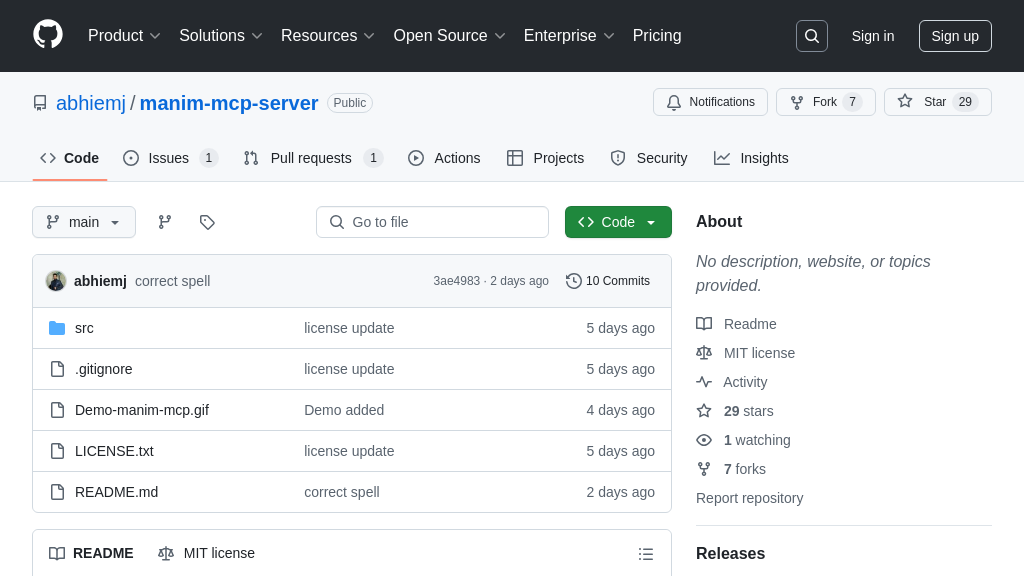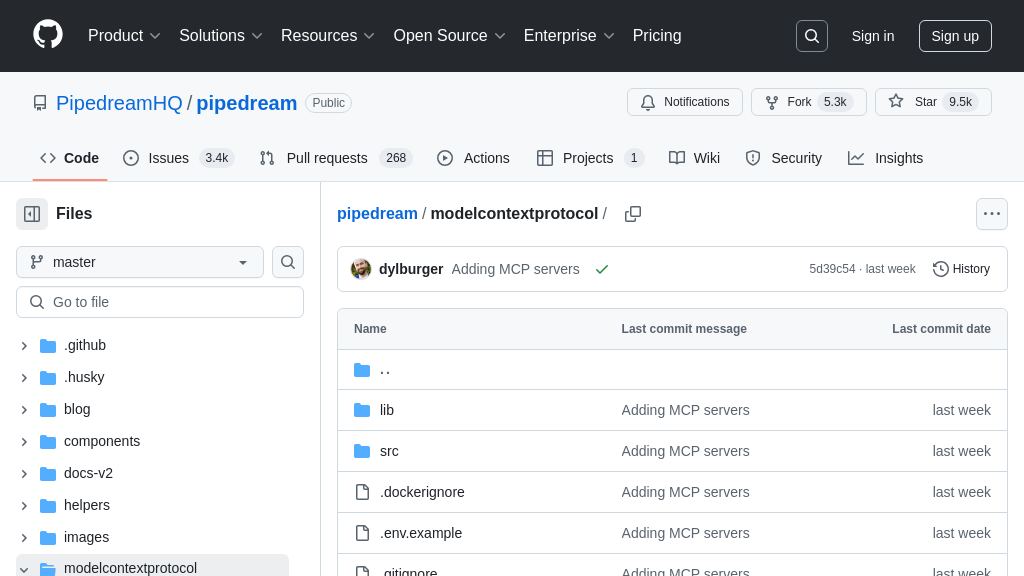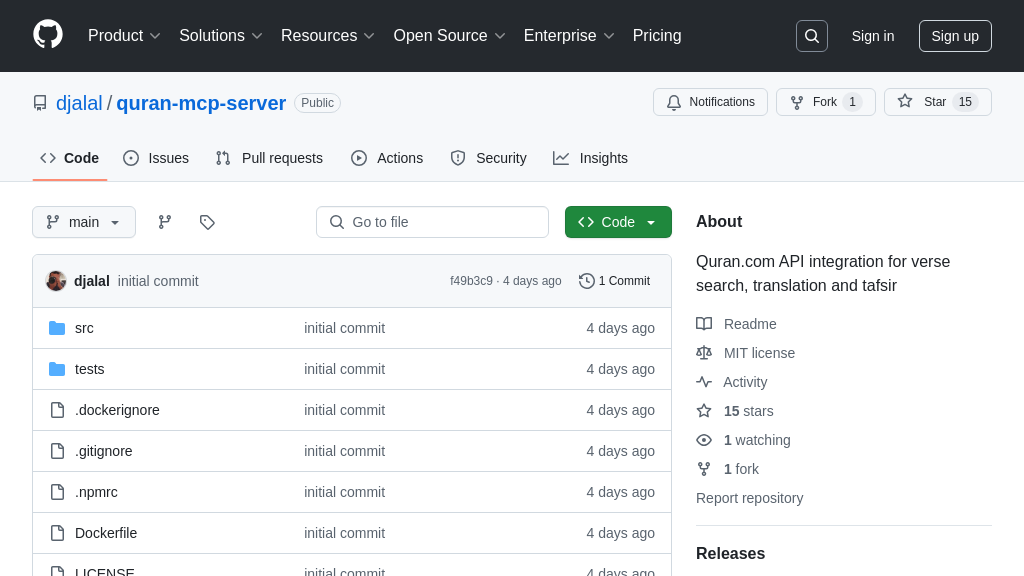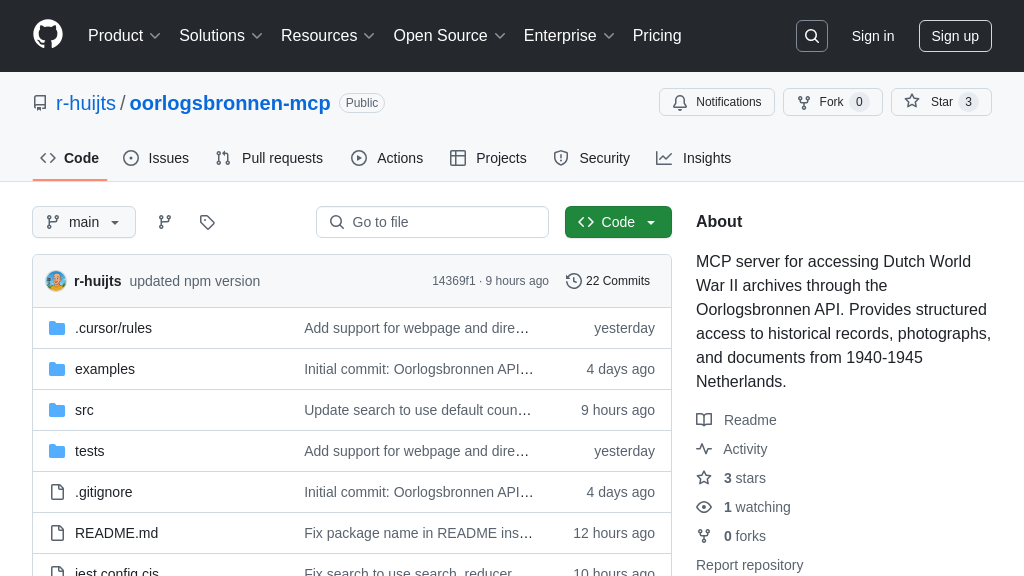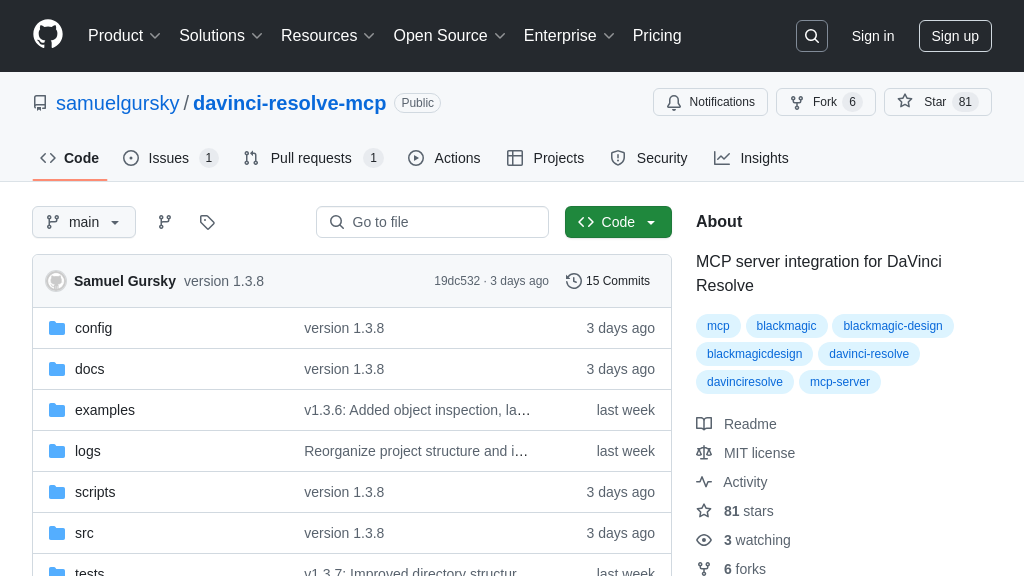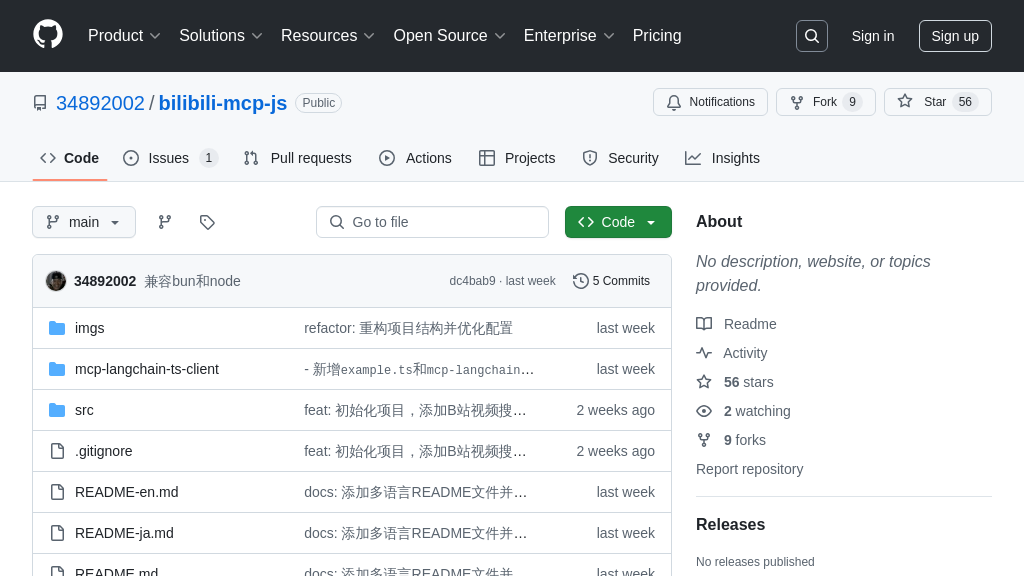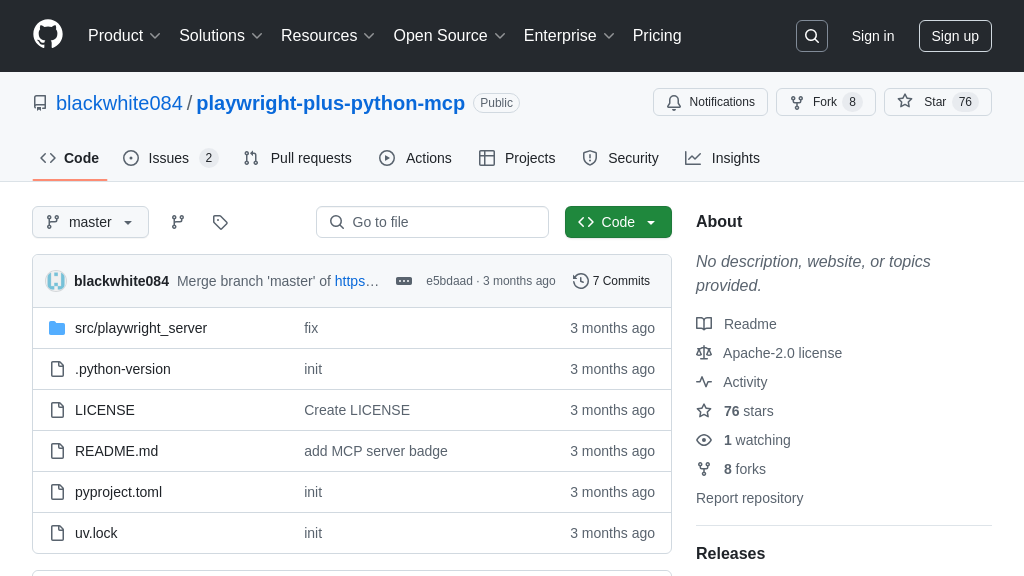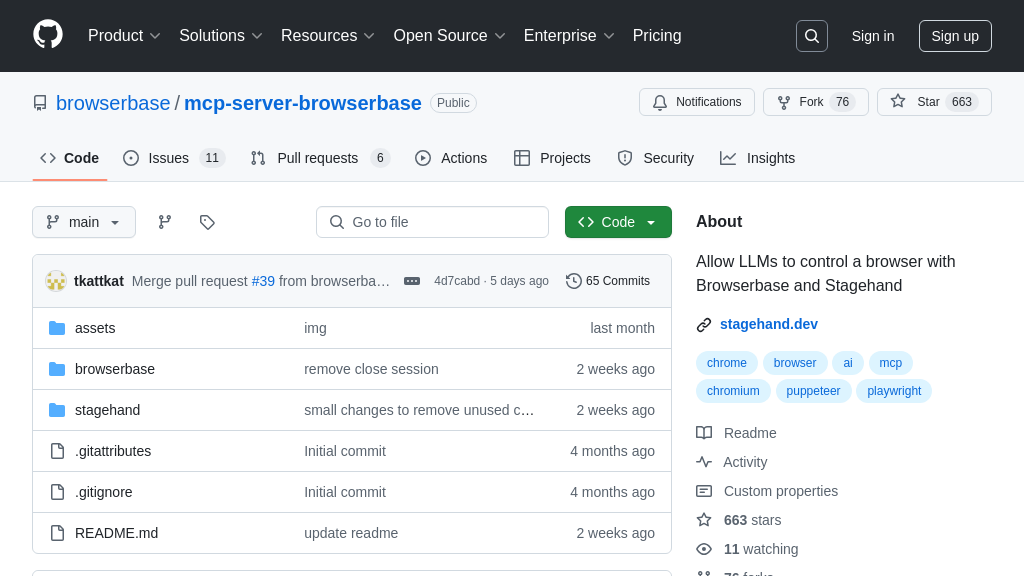mcp-package-version
An MCP server providing AI models with the latest package versions for secure and reliable code generation.
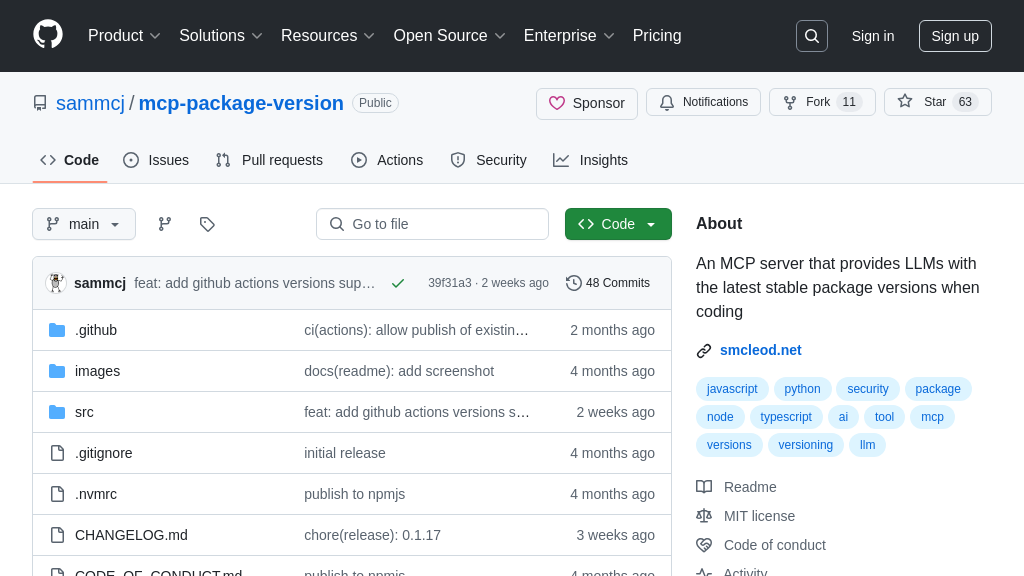
mcp-package-version Solution Overview
The mcp-package-version server is a valuable tool within the MCP ecosystem, designed to empower AI models with up-to-date information on software package versions. As an MCP server, it provides tools for checking the latest stable releases from various package registries, including npm, PyPI, Maven Central, and more. This ensures that AI code generation and recommendation engines can suggest current, secure, and functional dependencies.
This server offers specific tools tailored to different package managers, such as check_npm_versions for Node.js projects and check_python_versions for Python projects, as well as tools for checking AWS Bedrock models, GitHub Actions, and Docker container images. By querying this server, AI models can dynamically incorporate the most recent package versions into their code outputs, reducing the risk of outdated or vulnerable dependencies. The server is easily integrated into existing MCP setups, enhancing the reliability and relevance of AI-generated code.
mcp-package-version Key Capabilities
Accurate Package Version Retrieval
The mcp-package-version server's core function is to provide AI models with the most up-to-date stable versions of software packages from various registries. It achieves this by querying these registries (npm, PyPI, Maven Central, Go Proxy, Swift Packages, Docker Hub, GitHub Container Registry) using their respective APIs or metadata formats. The server then parses the responses to identify the latest stable version, filtering out pre-release or unstable versions based on semantic versioning principles. This ensures that the AI model recommends dependencies that are not only functional but also incorporate the latest security patches and feature enhancements.
For example, when an AI is generating a package.json file for a Node.js project, it can use the check_npm_versions tool to get the latest versions of react and express before adding them as dependencies. This prevents the AI from recommending outdated or vulnerable package versions. The server uses HTTP requests to the npm registry to fetch package metadata and then parses the dist-tags to identify the latest version.
Broad Registry Support
This MCP server distinguishes itself by supporting a wide array of package registries and ecosystems. Beyond the common npm and PyPI registries, it extends to Maven Central for Java, Go Proxy for Go modules, Swift Packages, AWS Bedrock for AI models, and container registries like Docker Hub and GitHub Container Registry. This comprehensive support allows AI models to generate code and configurations across diverse technology stacks, ensuring that the generated outputs are contextually appropriate and utilize the most current resources available.
Consider an AI tasked with creating a CI/CD pipeline. It can use the check_github_actions tool to identify the latest versions of actions like actions/checkout and actions/setup-node. This ensures that the generated workflow file uses the most recent and secure versions of these actions. The server interacts with the GitHub API to retrieve the release information for these actions.
AI Model Discovery on Bedrock
The mcp-package-version server provides specialized tools for interacting with AWS Bedrock, enabling AI models to discover and utilize other AI models. The check_bedrock_models tool allows listing, searching, and retrieving information about available models on Bedrock. The get_latest_bedrock_model tool simplifies the process of finding the most recent Claude Sonnet model, which is particularly useful for coding tasks. This functionality allows AI systems to dynamically incorporate and recommend other AI models, fostering a more interconnected and intelligent ecosystem.
For instance, an AI assistant could use check_bedrock_models to find the most suitable model for a specific task, such as text summarization or image generation, by querying Bedrock with relevant keywords and filters. The server uses the AWS Bedrock API to retrieve model metadata and then presents the results in a structured format for the AI to consume.
Docker Image Tagging
The check_docker_tags tool allows AI models to dynamically determine the available tags for Docker container images from various registries, including Docker Hub, GitHub Container Registry, and custom registries. This is crucial for generating Dockerfiles or deployment configurations that use specific image versions. The tool supports filtering tags using regular expressions and can include image digests for enhanced security and reproducibility.
For example, when an AI is creating a Dockerfile for a web application, it can use check_docker_tags to find the latest stable tag for the nginx image. This ensures that the application is deployed using a current and secure version of the web server. The server interacts with the Docker Hub or GitHub Container Registry API to retrieve the list of tags and then filters them based on the provided criteria.
